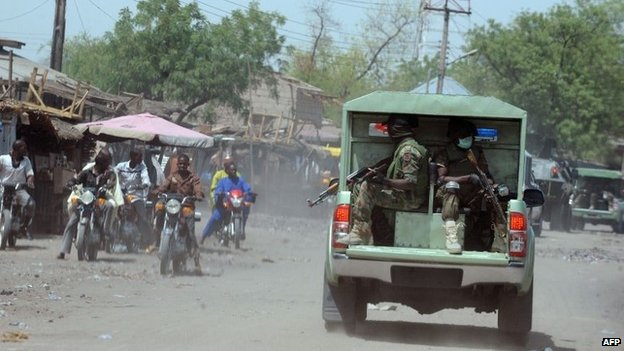By Ben Kopp
Impunity Watch Reporter, Europe
MOSCOW, Russia – Demonstrators disrupted Russian punk band Pussy Riot as the former political prisoners attempted to hold a press conference.

In 2012, Russian dissident musicians Pussy Riot rose to international fame by storming a Moscow cathedral, where they performed a provocative song that denounced Russian President Vladimir Putin. Band members Maria Tolokonnikova and Maria Alekhina imprisoned for hooliganism and inciting religious hatred. Authorities released them, alongside other political prisoners, shortly before the Olympics began in Sochi.
However, Pussy Riot immediately returned to denouncing the Kremlin, as well as conditions inmates endure in Russian prisons.
On 18 February 2014, police in Sochi detained members of Pussy Riot, human rights activists, and journalists in connection with an alleged theft at the band’s hotel. All charges were dropped and the detainees released within hours.
On 20 February 2014, Pussy Riot released an angry music video—“Putin Will Teach You to Love Your Country”—against Putin’s crackdown on free expression, as well as the Sochi Olympics’ price of $50 billion. In the song, Pussy Riot sings about the “constitution being lynched,” government pressure against Russia’s independent television station, and last week’s sentencing of environmentalist Evgeny Vitishko to a penal colony for three years.
“The goal is to show what it’s like to be a political activist in Olympic Sochi,” said Pussy Riot member Tolokonnikova.
The video included the previous day’s footage of Cossacks—descendants of the former patrolmen of Russian borderlands—whipping the band members shortly after their song began near a “Sochi 2014” sign.
While foreign media prepared for a news conference with the band at a Sochi hotel, a hotel employee informed journalists that the conference room was unavailable. Several dozen journalists went outside, where uniformed police and undercover security officers waited for band members to arrive.
As the four Pussy Riot members approached with arms locked, five male university students, accompanied by a man dressed in a giant chicken suit, pulled out raw chickens and chanted, “We like sex with chicken” in mangled English. Then the students and costumed chicken attempted to disrupt the news conference.
The man in the chicken costume said, “We don’t like people who have sex with food. We don’t want them here.”
“We don’t understand their behavior and that’s why we’re protesting,” said 23-year old Sergei Barashov, one of the anti-Pussy Riot demonstrators. Barashov expressed concern that the punk band would desecrate a recently-built Russian Orthodox cathedral on the outskirts of Sochi’s Olympic Park.
For further information, please see:
CNN International – Beaten But Hardly Tamed, Pussy Riot Strikes Back in Sochi – February 20, 2014
Guardian – Pussy Riot’s Tour of Sochi: Arrests, Protests – and Whipping by Cossacks – February 20, 2014
New York Daily News – Bondy: Pussy Riot Slams ‘Total Police and Security Control’ of Winter Olympics at ‘Secret’ Press Conference – February 20, 2014
Reuters – Pussy Riot Mocks Russia’s Olympics in Music Video – February 20, 2014
New York Times – Members of Russian Protest Group Attacked by Cossacks in Sochi – February 19, 2014

